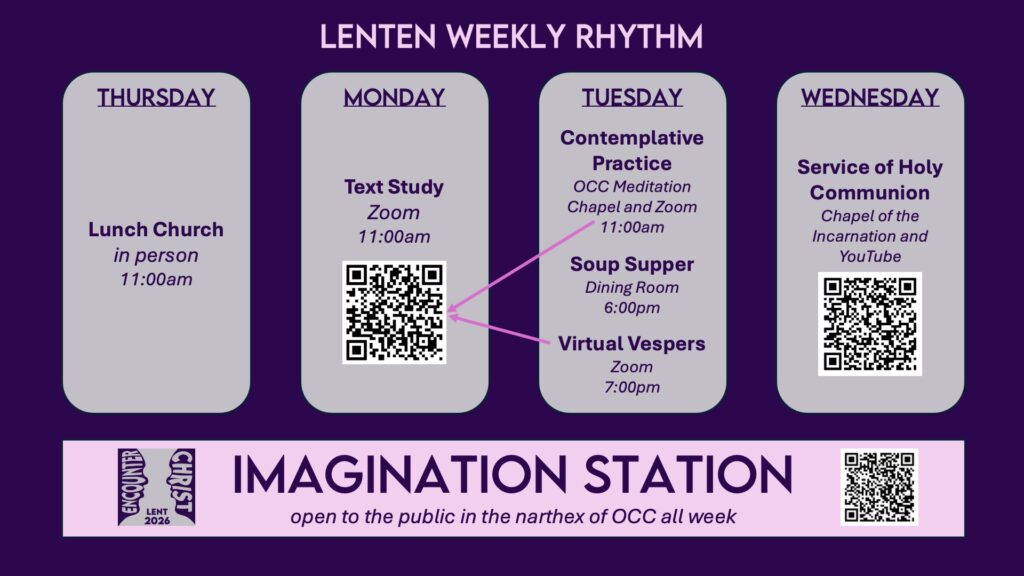We will observe Ash Wednesday together this week and receive the symbol of ashes on our foreheads. All are welcome.
This begins our Lenten journey. The theme this year is Encounter Christ.

Watch this video for an overview. Share it with your friends.

The weekly rhythm begins this Thursday…
Thursday
11:00am | Lunch Church, in person. We will share a meal, engage the Gospel text for the upcoming Wednesday, then respond through co-creating one part of the banner that will be hung in worship.
Monday
11:00am | Text study on Zoom. We will engage all the readings for the Revised Common Lectionary.
Tuesday
- 11:00am | Contemplative Practice. Hybrid in OCC Meditation Chapel and on Zoom.
- 6:00pm | Soup Supper in Dining Room.
- 7:00pm | Virtual Vespers on Zoom. This is a time to check-in, read scripture, and pray together.
Wednesday
11:00am | Service of Holy Communion. Hybrid in the Chapel of the Incarnation and on YouTube.
Join the Community Art Project.
There will be an imagination station set up in the OCC all week. You are invited to respond to the Gospel text visually–drawing, abstract colors and shapes, words–and add it to the banner. Each panel will be added to the banner on Wednesdays in Chapel. Use the QR code below to upload your contribution. We will print it and add it for you.











